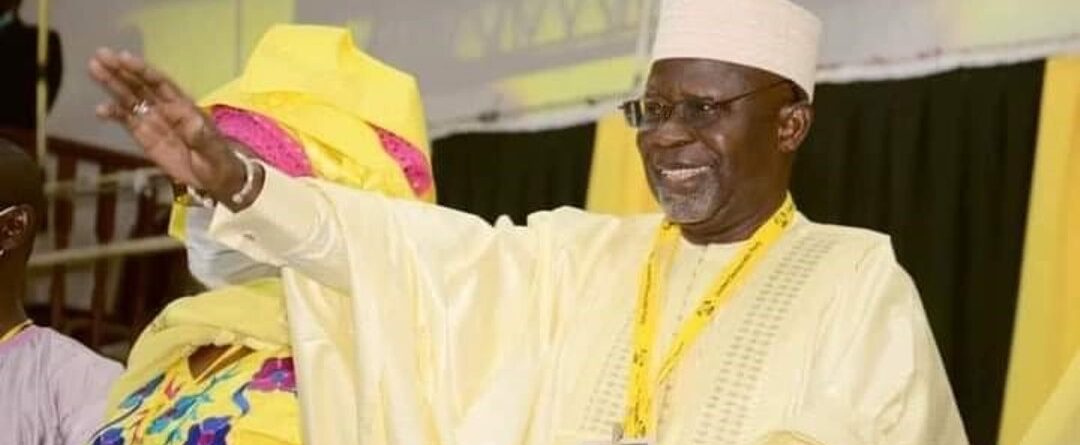Dangerous speech alert: UDP leader’s remarks towards Serahuli community
The leader of opposition United Democratic Party (UDP) Ousainou Darboe’s comments with respect to how the Serahule people allegedly voted in the 2016 presidential elections have been flagged as dangerous speech by Malagen media monitoring.
Mr Darboe’s comments were made on October 17, 2021, during a political rally held in Basse Koba Kunda, in the Upper River Region (URR). The event was part of the party’s nationwide tour to popularise their 5-Point Agenda – a manifesto – for the Dec. 4 presidential election.
The Serahule or Soninke make up 9 percent of the country’s population. According to Darboe, they did not back Adama Barrow’s bid for presidency in 2016 when he faced off with former president, Yahya Jammeh, now exiled in Equatorial Guinea. Barrow, who came from Darboe’s UDP party had won the election as an independent candidate backed by six parties – UDP, PDOIS, NCP, PPP, NRP and GPDP.
What exactly did Darboe say
Speaking in the local Mandinka language, Darboe said: “And what is happening in this country is they [the Serahules] want to make Adama Barrow and the NPP [National Peoples Party] a Serahuli property. And the truth is, Serahuli people, you did not vote for Adama Barrow in 2016. In 2016, if it were for only you [Serahuli ethnicity], Adama Barrow would not have won. But today you are making yourself as you own NPP.”
What else did Darboe say
In the same speech, Darboe had warned against ethnic politics. He said: “I want to give a short piece of advice – which is, for us to accept that every political party in this country is headed by one person who would hail from ethnicity in The Gambia. The leader coming from that ethnicity doesn’t mean that political party belongs to that ethnic group. I want to advise the people of URR not to see the UDP as a Mandinka party.”
Analysis – how is it a dangerous speech
In flagging Darboe’s comments, the following considerations have been made:
- The status and influence of Mr Darboe. He is one of the most influential and powerful persons in the country.
- The publicity generated by the comments: The comments were made at a rally attended by thousands of supporters of the UDP. The speech is available on multiple online platforms. It was published by the media.
- The potential to cause grievance among UDP supporters towards the Serahule people and vice versa. Darboe’s remarks had attracted condemnation from a Serahule association. The group in their statement, published by the media, also highlighted alleged cases of attacks on Serahules by persons linked to Darboe and accused UDP of tribalism. Indeed, the UDP, through their regional executive in Upper River Region had come out to ‘clarify’ that Darboe’s comments were ‘blown out of proportion’ and it was not meant as an attack on Serahules.
- False claim. Darboe’s generalisation is as problematic as it is false. Analysis of the 2016 election results show Jammeh had won in a number of Serahule majority communities but not all. Besides, the Serahules are spread across the country.
Conclusion
The political atmosphere in the country is charged. The democracy that was born in 2016 is young and the country is undergoing a transitional justice process. Studies have shown that there are ethnic and religious divisions. As the country goes through this election process, it is important especially for political figureheads like Darboe to avoid comments that could be interpreted as attacks on individuals or groups.
About Malagen media monitoring
Malagen carries out media and election campaign monitoring for false information and hate/dangerous/offensive speeches with respect to the 2021-2030 election cycle. The platform also monitors and keeps track of the promises made by candidates.
The objective of this initiative is to expose and counter false information and hate/dangerous/offensive speeches. The goal is to promote responsibility and accountability in election campaigns.
For purposes of this monitoring,
False information is:
Hate speech is: Any expression that constitutes an incitement to violence or advocacy for discrimination or hostility against an individual or group based on their identity, such as ethnicity, gender, caste, religion, sexual orientation, nationality, etc.
Dangerous speech is: any expression that is likely to increase the risk of the target audience to participate or condone violence against people for their membership of a group or organization.
Offensive speech is: any communication and or utterances that annoys or upsets another person. This includes rude and insulting messages.
If you know of any comment made in the media – social media included – or campaign platform by any political operative, kindly contact us on kebbajephang@gmail.com or call/WhatsApp 308 67 38.

